Food and wine experts explain how tariffs on European exports could harm the reeling industry
Restaurant owners and wine experts discuss the real-life impacts.
Italian wine, French cheese, Belgian chocolates and olives from Spain are just a sampling of imported products that could soon get slammed with costly new tariffs by the U.S.
Earlier this week, the Office of the U.S. Trade Representative proposed new tariffs on nearly $3.1 billion worth of European exports that included dozens of high-end goods and seeks to raise existing tariffs by 75% on wine and cheese.
The tariffs laid out by the USTR are part of an ongoing 16-year trade dispute between the U.S. and Europe over high-profile targets, such as aircraft subsidies to Airbus, which could be stoking a larger transatlantic trade fight.
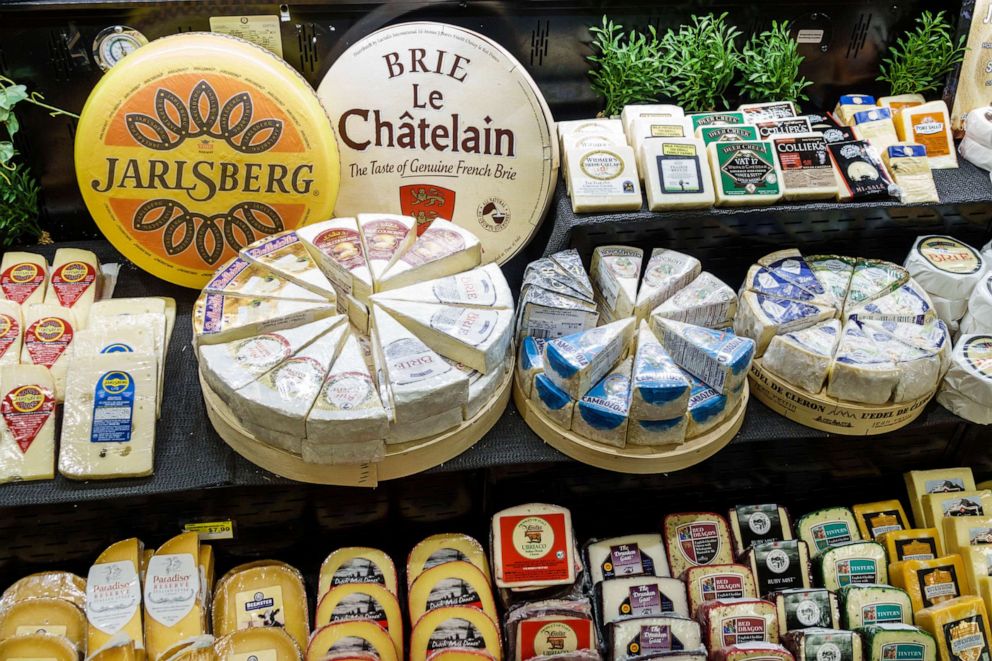
Imports like German beer, Irish whiskey, London gin and dozens of other products from France, Germany, Spain and the U.K. would get slapped with the new higher tariffs and duties would be increased on aircraft, fresh cheese, butter, yogurt and dozens more, according to the docket that opened up for public comments on Friday.
The month-long public comment portal will close July 26, but feedback has quickly poured in from U.S.-based businesses directly involved in the food and wine industry in response to the Trump administration's tariffs proposal.
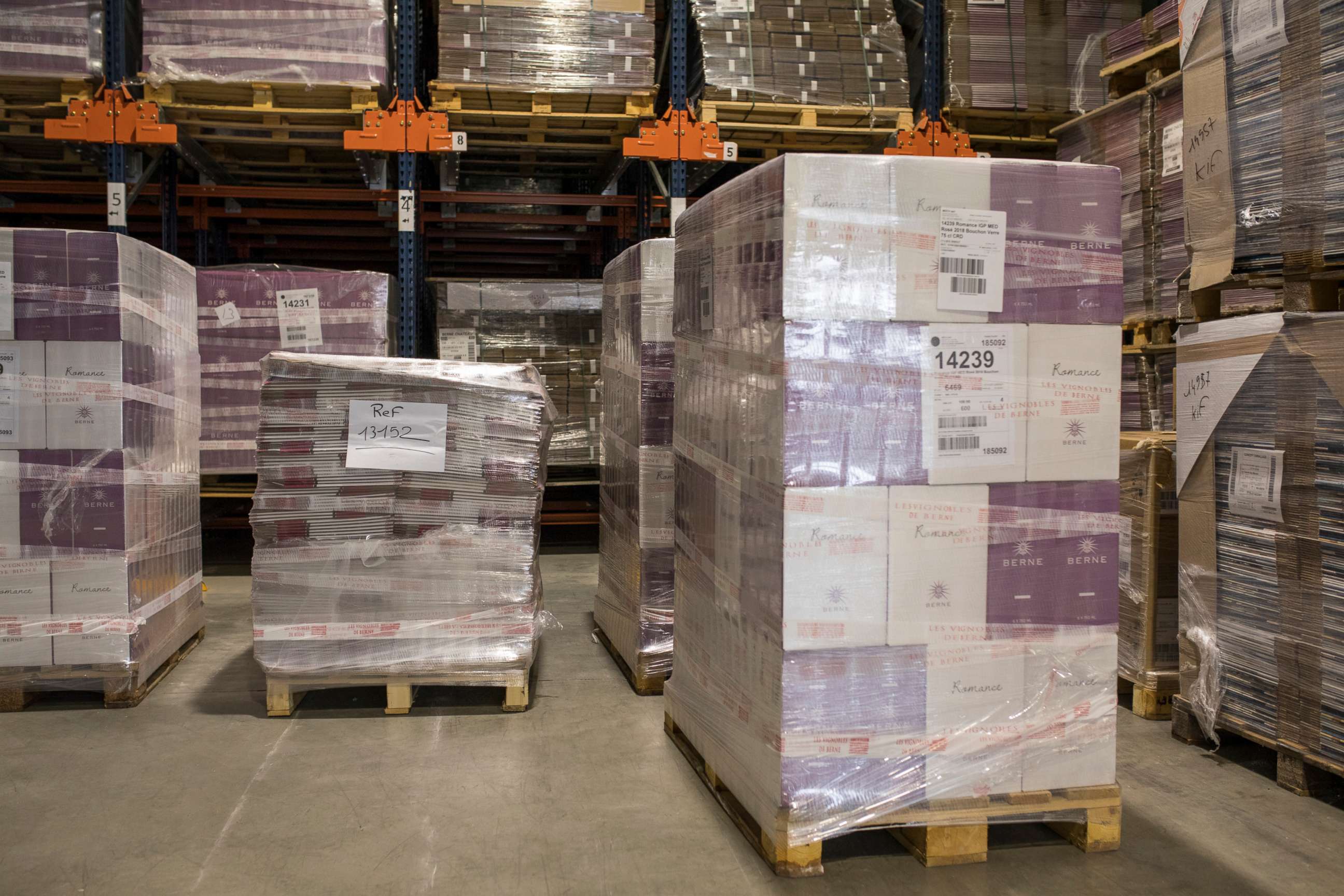
Ben Aneff, president of the U.S. Wine Trade Alliance, has been on the forefront in the fight against wine tariffs and a leading voice on the effects of tariffs. And as a business owner himself, he explained to ABC News that "U.S. consumers would see higher prices, and less choice."
"These tariffs would cause pricing to rise significantly, and unfortunately could make certain products too expensive for U.S. importers to bring into the country," he said.
Aneff -- a managing partner at one of the country's top wine shops, Tribeca Wine Merchants in New York City -- has been steadfast in his work with the National Association of Wine Retailers, the International Trade Commission and other members of the business.
"These tariffs," as Aneff explained, "are a shot to the gut for tens of thousands of businesses all across the U.S. -- millions when you take restaurants and bars into consideration."
Of the 47,000 independent wine retailers and over 6,500 small distributors in the U.S., most are family owned.
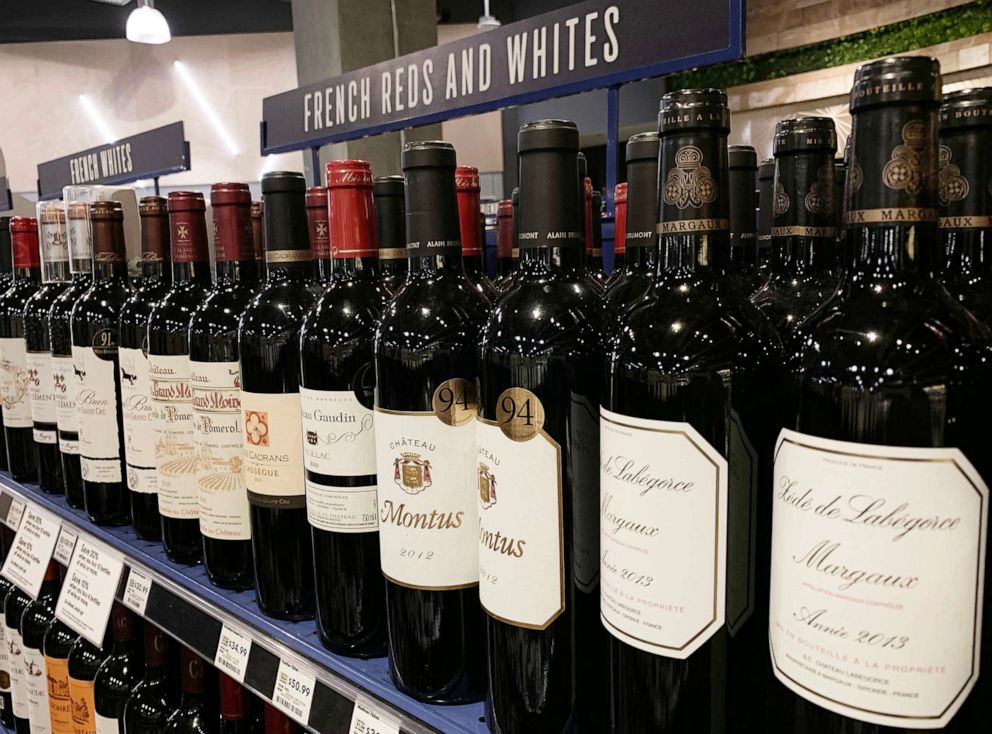
Though intended to punish Europe, the existing tariffs have backfired on American importers and distributors as well as restaurants and retailers.
For Oregon restaurant owner Andy Fortgang of Canard and Le Pigeon, the tariffs proposal could not have come at a worse time for the hard-hit industry that's still trying to build up revenue amid the ongoing coronavirus pandemic.
"More than ever, the survival of restaurants is about managing costs. Tariffs on imported wine and food stuffs cut into that tiny bit of potential profitability, further threatening our ability to survive," Fortang told ABC News. "As restaurants try to survive the effects of COVID, the struggle is just creating revenue."
The hospitality industry was one of the sectors hit hardest by COVID-19 shutdowns, according to the U.S. Bureau of Labor Statistics. The industry shed 7.7 million jobs and of those, 5.5 million jobs were in the food and drinking service sectors.
"And the threat couldn’t come at a worse time, when most of these businesses have seen their sales absolutely collapse over the past three months. Even worse, the tariffs on wine inflict four times the damage to U.S. businesses than to their targets in the EU," Aneff said. "Data shows that for every $1 billion of harm the tariffs inflict on the EU, they do over $4 billion in damage to the U.S., which makes them an incredibly ineffective way to influence the EU to change its behavior regarding Airbus."
Fortang also pointed out that this "is not a time when we can raise prices or change what our concepts are -- if we are known for Italian or French or Spanish food, changing that will lose the loyalty of our guests that expect certain wines and dishes."
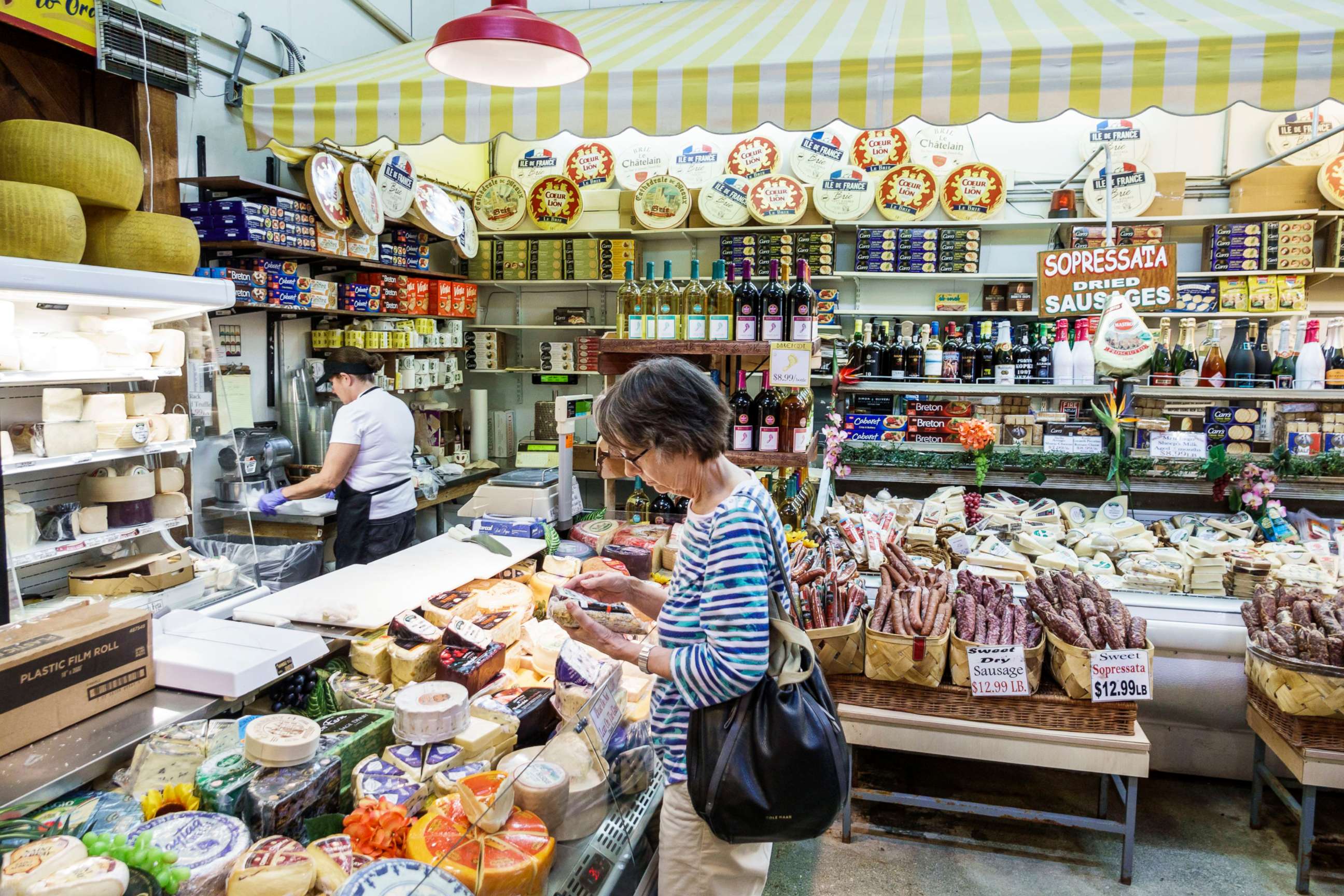
By that same logic, the newly proposed tariffs on dozens of fresh and cured meats, cheeses and olives from top European producers could mean striking things like charcuterie boards from some menus.
Like many restaurant and bar owners grappling with a multitude of changes as a result of federal, state and local policies due to COVID-19, Fortang said "it's hard to say" how this new hurdle could shift their business strategy.
"Truthfully we would order less of those products or sell them with smaller margins, further endangering our ability to continue," he said bluntly. "There is not a great pivot for this. The tariffs on wine from Europe hurt more small businesses here than they harm Airbus."
Restaurateur Todd Sawyer, owner of Atlas Bistro in Scottsdale, Arizona, said that not only will this throw a wrench in the wine process from grape to glass, but it could mean putting small European winemakers out of business.
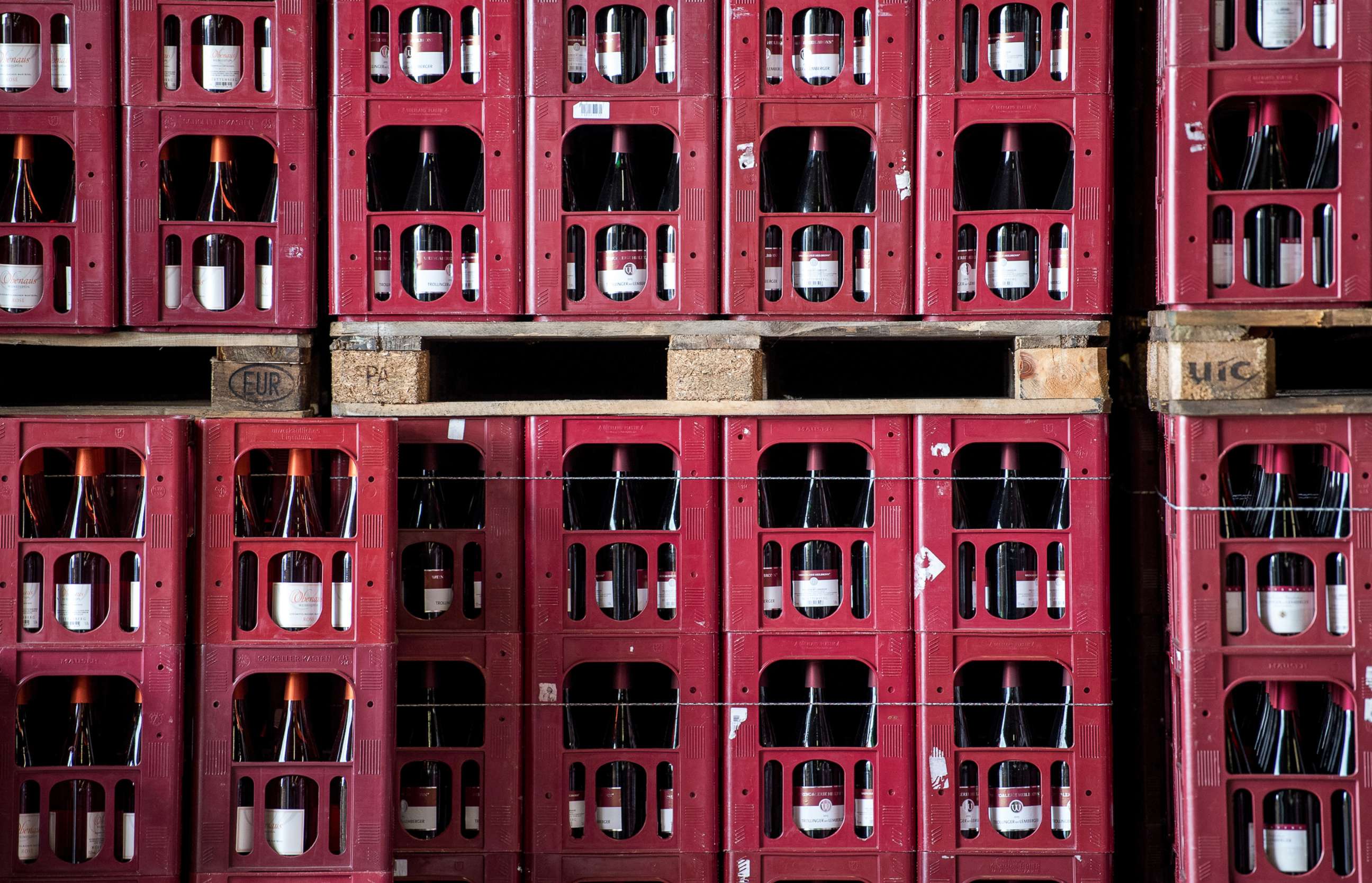
"The wine tariffs cause disruptions in supply chains that we count on for our wine lists and by-the-glass programs," he explained. "The tariffs also jeopardize the financial well-being of the smaller distributors that make the majority of their money selling European wines, which allows them the ability to represent smaller boutique local and regional wineries."
Without smaller distributors, restaurants like Atlas Bistro "will be forced to deal only with few large distributors that offer volume purchasing discounts to the chain retailers."
"The higher cost to small independent buyers would make us not competitive in the pricing of wines due to us buying wines by the case and the chains buying wine by the pallet," Sawyer added. "We would incur more costs in educating our staffs, reprinting wine menus with shortages and upsetting customers who don't understand the tariffs and assume we are just trying to charge more money for the same product they used to buy."
Aneff, who has spoken with wine producers and growers in Europe who would be impacted, said they "are as confused as much of the U.S. is, as to why their products are involved in a dispute between the U.S. and Airbus."
"There are plenty of ways to pressure the EU. Wine tariffs do more harm here in the U.S., and the EU knows it," he added.
While the new tariffs would not go into place until September if the U.S. decides to move forward, there are things consumers, small business owners and wine lovers alike can do.




